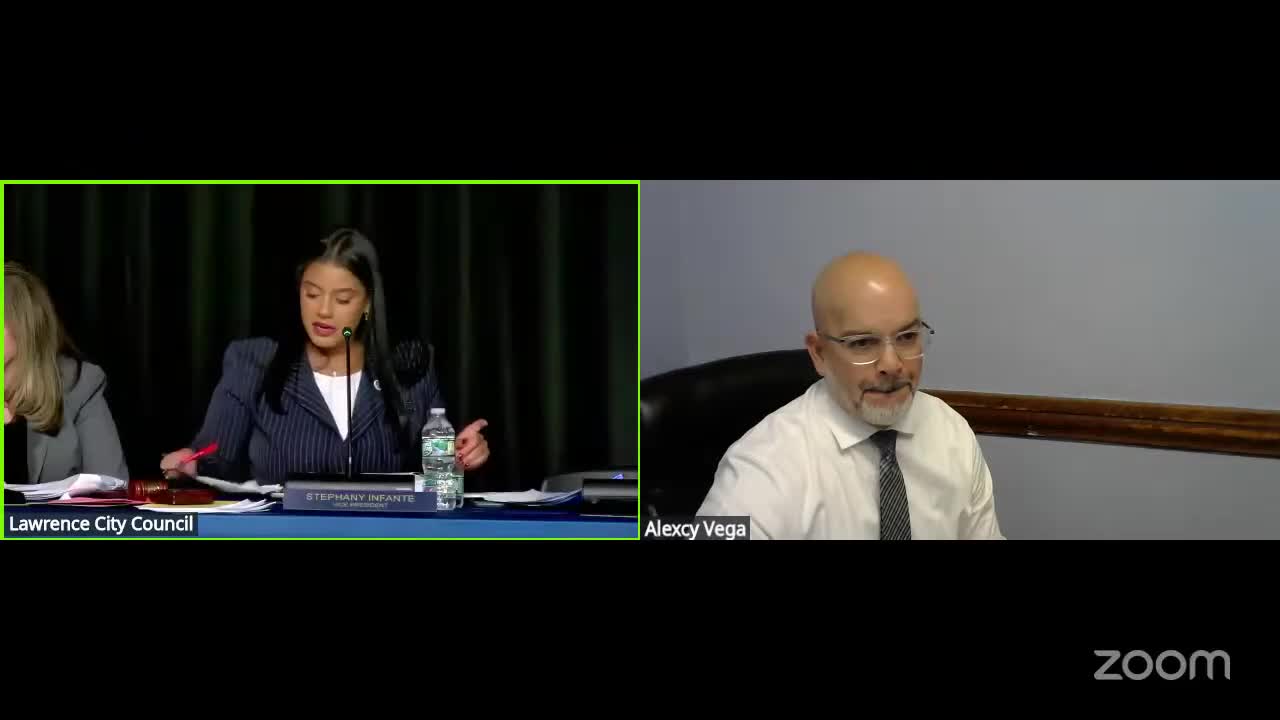After hours of testimony, Lawrence council adopts anti‑camping ordinance with outreach and due‑process provisions
Get AI-powered insights, summaries, and transcripts
Subscribe
Summary
Following a lengthy public hearing with service providers, residents and people with lived experience, the council voted to adopt a proposed anti‑camping ordinance that city leaders say emphasizes offers of shelter, notice, interagency outreach and enforcement as a last resort.
The Lawrence City Council adopted a proposed ordinance Nov. 18 that would prohibit unauthorized camping on city property and in public rights of way except when emergency shelter space is unavailable (item 5‑55‑51‑24). The adopted text (read into the record at the start of the hearing) defines “camping,” “camp materials,” sets notice and offer‑of‑shelter requirements, allows for removal and temporary storage of personal property, and authorizes enforcement by the Lawrence Police Department and other authorized officers under applicable Massachusetts law.
The public hearing drew more than a dozen speakers and ran over an hour. Testimony opposing the ordinance came from school committee member Jonathan Guzman, outreach workers (including Michelle Feeney and others), people with lived experience who said criminalization would harm those experiencing homelessness, and advocates who urged investment in shelters, low‑barrier day services and harm reduction instead of penalties. Supporters including residents and faith‑community representatives urged tools to protect parks, sidewalks and schools and described repeated refusals of services by some encampment residents.
Police Chief Maurice Aguilar and Behavioral Health Unit Lieutenant Fleming described robust weekly coordination with roughly 37 community partners and said outreach and offers of shelter are the norm; they said the ordinance is intended as a last‑resort enforcement tool with multiple due‑process steps before arrest and that enforcement will be selective and coordinated with social‑service partners. The chief agreed to provide periodic updates to the council on implementation.
Councilors debated enforcement, shelter capacity and legal clarity before voting. A motion to approve the ordinance passed in roll‑call vote; the chair announced 'motion carries.' The clerk recorded the roll call and the chief committed to periodic reporting to the council as the city implements the new tool.
The ordinance cites state enforcement options (including noncriminal disposition under Mass. Gen. Laws ch. 40, §21D and references to Mass. Gen. Laws ch. 272 §59 for public order offenses) and establishes a 30‑day hold for personal property not disposed of as evidence. The city will post notices and distribute leaflets on the ordinance and will provide offers of shelter before removal actions when shelter is available.
